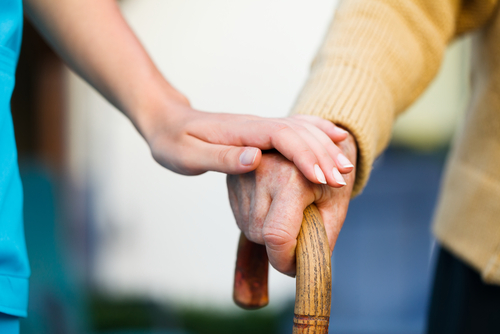UNC Launches Training Program to Improve Dementia Patients’ Care

A new program called the Dementia Friendly Hospital Initiative is set to be launched in North Carolina to raise awareness among healthcare providers on how patients with Alzheimer’s disease and dementia experience care interventions and how to meet their needs.
Led by the University of North Carolina School of Medicine‘s division of geriatric medicine and the Center for Aging and Health, this initiative will provide specialized “dementia-friendly” training in four UNC Health Care system hospitals. It is expected to reach approximately 5,500 dementia patients, age 65 and older, every year.
Starting at UNC Hospitals Hillsborough Campus, the program is designed to heighten awareness on how to compassionately address the needs of each patient. It’s expected that by this fall, all clinical and nonclinical staff will be fully trained.
The training is expected to start this year and be expanded to NC Memorial Hospital in Chapel Hill, Pardee UNC Health Care in Hendersonville, and Wayne UNC Health Care in Goldsboro during 2020. In all, the initiative will involve some 3,900 employees.
”Hospitalization can be traumatic for patients with dementia and challenging for caregivers and families,” Jan Busby-Whitehead, MD, the initiative’s chief researcher, said in a news release. “There is much we can do to improve experiences and outcomes for these patients.”
Not only are patients with Alzheimer’s and other types of dementia more frequently hospitalized than those without the disease, they often require lengthy stays. For these patients, even routine medical procedures can cause confusion, fear, and agitation.
“Imagine if you don’t know what’s going on,” said Krista Wells, a clinical nurse education specialist at UNC’s Hillsborough Campus. “With a dementia patient, their common reaction is often to lash out and tell people … ‘Leave me alone, stop bothering me.’”
The initiative involves the entire hospital in patient care, making patients feel safe, Busby-Whitehead said.
The project will receive financial support from the Duke Endowment and is expected to include a broad range of hospital personal, from physicians and food service workers to security officers and administrators. They will be trained in ways to enhance safety and quality of patient care. Other goals include shorter stays and fewer patient injuries.
The education program was initially developed in 2006 for acute-care nurses, and based on input from staff focus groups at five hospitals. If successful, the project could be extended annually to other facilities.






